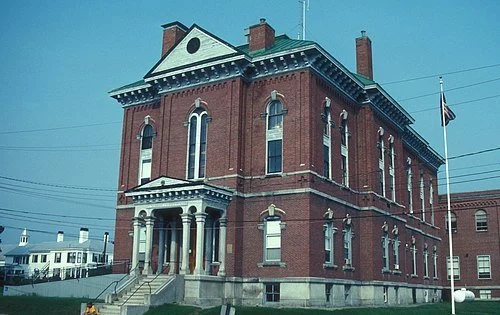
How about a county revival?
Somerset County Courthouse, in Skowhegan, Maine
Adapted from Robert Whitcomb’s “Digital Diary,’’ in GoLocal24.com
County governments with substantial powers are mostly long gone from New England. That’s for a variety of practical and political reasons. Among them are that towns and cities were incorporated here earlier than in the rest of America, and there has long been little unincorporated land (except in Maine). Still, many of the region’s counties used to have real powers (most of which were taken away in the past half century). But town and city officials have tended to want to grab those powers, and voters were increasingly convinced that counties were dinosaurs.
And yet some things are best handled regionally, rather than community-by-community, including such matters as open-space protection, water supplies and, increasingly, encouraging the provision of that somewhat ill-defined thing called “affordable housing.’’ Certainly there can be more regionalization of public-safety services and education, especially in suburban and exurban areas. This could save money (by reducing service duplication) and improve service quality.
I was impressed when I briefly worked in Delaware, in the ‘70’s, by the generally high quality of the services and infrastructure of New Castle County, which includes the city of Wilmington as well as suburban and exurban land. It’s one of three counties in The First State, which is the second smallest state in the Union by area. New Castle County has an elected county council and county executive. Rhode Island, especially, would do well to study it. As has been asked many times before, does the tiny Ocean State really need 39 municipalities and 36 school districts (32 municipal and 4 regional) school districts? But maybe the desire for very local control trumps efficiency?

